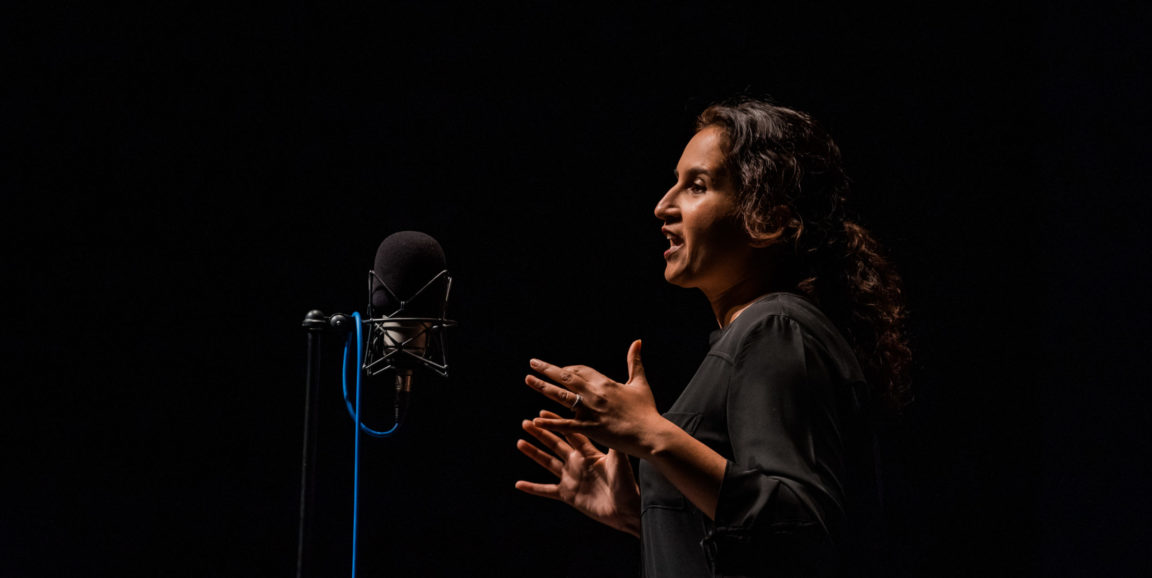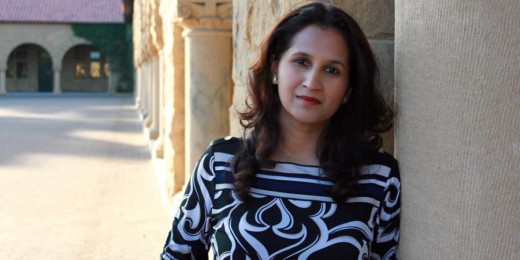Growing up, when I would hear about my family's experience in 1947 -- the tumultuous year that British India was divided into India and Pakistan -- it usually came to me as bits of information at inopportune moments, often accompanied by my dad's anger, bitterness and sadness.
But on a road trip, when he talked about it in 2007, his narration was totally different. It was smooth. It was cohesive. It was stripped of all those negative emotions.
I'm a psychiatrist, and trained to listen closely. As my dad's words floated to me from the backseat of the minivan, I recognized them as testimony.
Patients give you testimony all the time. They tell you their deepest, darkest secrets, their worst fears. They tell you things they don't even tell their loved ones. Testimony is a very intentional narration. Testimony requires the listener to act.
So, after the road trip, I went back to my private practice in Milwaukee, Wisconsin. But I couldn't stop thinking about India.
My grandparents' lives -- what were they like? What were their losses, their failures, their successes, their ambitions?
And then what about their deaths?
My grandmother just took to her bed and died of this mysterious illness. She was in her early 40s. At the time of her death, she must have known that she'd leave the rest of her young children motherless. And my grandfather, his was a violent death. At the time of his death, he must have known that his surviving children were not only going to be orphaned, but they were going to be destitute.
Two traumatic deaths. Deaths with a domino effect. Trauma-filled lives for their children. And a domino effect for me, too. What was I going to do with this story?
Pretty early on in my medical career, I decided I was going to be a psychiatrist. And that was a wildly unpopular decision. My parents didn't understand it. They did not approve. My mentors did not approve. But I wanted to submerge myself in this world of mental suffering.
I'd always been drawn to those who suffered the unspeakable. Those who'd survived tragedy. It was as though bearing witness was where I was always meant to be. So, this slow dawning that began with that road trip. The displaced, the traumatized, the outsiders, the survivors: I had, all along, been of those people.
I know about post-traumatic stress. I know about trauma. But I wanted to know more. I wanted to become a trauma scientist, so that I could understand PTSD and study it. But that required a move to California. So, I started over. I was a nobody. An outsider. I had to earn my way, step by step, and I did.
It was a horrible transition. The only thing that kept me going in all of the turmoil -- and the disappointments that the weeks, months and years would bring -- was this newfound connection to trauma survivors.
I had, all along, been of these people.
People like my patient, John. He sits across from me in the clinic. He's middle-aged, stocky build. He's wearing sweatpants. He's telling me about his weekend trip to the mall. His story is all over the place. One minute he's talking about a shopper in Old Navy. The next minute he's talking about an IED explosion in Iraq. Old Navy, Iraq. Iraq, Old Navy. I struggle to track what he's saying.
I feel this old urge rise up in me, this urge to interrupt. To organize. To put order on his disorder. But I resist that urge, and I continue listening.
He's getting louder now. He leans in. His face is intense. He's staring off into the distance. He's talking about a woman he saw in the mall who was cleaning tables in the food court. Her face reminded him of a woman he'd seen an Iraq. Her face reminded him of that day in Iraq. The day an IED exploded, and he was sent in to clean up the mess.
The smell of burning flesh. The blood-splattered face of a mother.
The woman, cleaning the tables in the food court.
I feel another urge rise up in me. An urge to deny the story. This did not happen. This is unspeakable. It's unthinkable. But I resist the urge, and instead I stay present.
John's silent now. He seems distant. I feel like he's left the room, so I try and pull him back in.
"Setbacks are inevitable. Tomorrow will be a better day. You've come so far."
He nods, but his eyes betray the truth. His mind's pulling him elsewhere. He's beyond my therapeutic reach today.
I want to lean in, to try harder to fix him. But I resist the urge, because I know all too well healing is not going to happen on my timeline. It's going to be two steps forward, one step back. It's going to be bumpy and unpredictable.
My job in all of this: to bear witness, to stay present, to keep my heart large and to learn to tolerate the distress.
Shaili Jain, MD,is a psychiatrist specializing in treating post-traumatic stress disorder. She currently serves as Medical Director for Integrated Care at the VA Palo Alto Healthcare System and is a clinical associate professor of psychiatry and behavioral sciences at the School of Medicine. Her debut nonfiction book is The Unspeakable Mind.
This is a condensed version of a piece first featured by The Nocturnists, a live show and podcast where doctors share stories from the world of medicine.
Some patient details have been changed to protect privacy.
Photo by Kathleen Sheffer, courtesy of The Nocturnists






